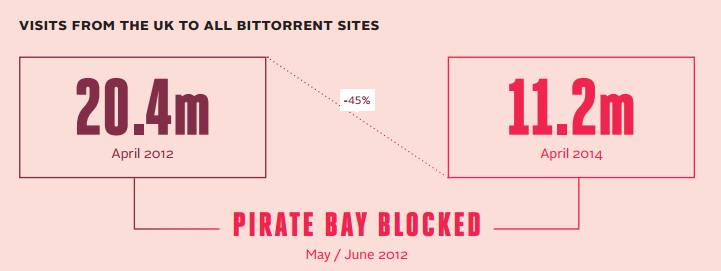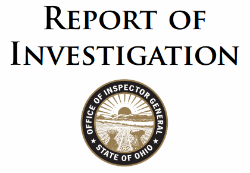Music Industry Wants Cross Border Pirate Site Blocks
mardi 14 avril 2015 à 19:05 In recent years blockades of “pirate” websites have spread across Europe and elsewhere. In the UK, for example, more than 100 websites are currently blocked by the major ISPs.
In recent years blockades of “pirate” websites have spread across Europe and elsewhere. In the UK, for example, more than 100 websites are currently blocked by the major ISPs.
In recent weeks alone several new countries adopted similar measures, Australia, Spain and Portugal included.
Opponents of this censorship route often argue that the measures are ineffective, and that people simply move to other sites. However, in its latest Digital Music Report music industry group IFPI disagrees, pointing at research conducted in the UK.
“Website blocking has proved effective where applied,” IFPI writes, noting that the number of UK visits to “all BitTorrent” sites dropped from 20 million in April 2012 to 11 million two years later.

The key to an effective blocking strategy is to target not just one, but all leading pirate sites.
“While blocking an individual site does not have a significant impact on overall traffic to unlicensed services, once a number of leading sites are
blocked then there is a major impact,” IFPI argues.
For now, however, courts have shown to be among the biggest hurdles. It can sometimes take years before these cases reach a conclusion, and the same requests have to be made in all countries.
To streamline the process, copyright holders now want blocking injunctions to apply across borders, starting in the European Union.
“The recording industry continues to call for website blocking legislation where it does not already exist. In countries where there is already a legal basis for blocking, procedures can be slow and burdensome,” IFPI writes.
“For example, within the EU, blocking The Pirate Bay has meant taking multiple legal actions in different member states and rights holders are calling for injunctions to have cross-border effect.”
In addition to website blockades the music industry also stresses that other stakeholders should do more to help fight piracy. Search engines should prioritize legal services, for example, and advertisers and payment processors should cut their ties with pirate sites.
While IFPI’s numbers suggests that BitTorrent piracy has decreased globally, it still remains a significant problem. The group estimates that there are still four billion pirated music downloads per year on BitTorrent alone.
In other words, there’s plenty of blocking to be done before it’s no longer an issue, if that point will ever be reached.
Source: TorrentFreak, for the latest info on copyright, file-sharing, torrent sites and anonymous VPN services.
 The dramatic events of January 2012 in which the gigantic Mega empire of Kim Dotcom was brought to its knees are now more than three years old. Legal argument has dogged the case from day one, with each passing month presenting yet more points of contention.
The dramatic events of January 2012 in which the gigantic Mega empire of Kim Dotcom was brought to its knees are now more than three years old. Legal argument has dogged the case from day one, with each passing month presenting yet more points of contention. Last year we received a well documented report from the former operator of USAWarez.com and USATorrents.com, who
Last year we received a well documented report from the former operator of USAWarez.com and USATorrents.com, who  The Brazilian Civil Rights Framework for the Internet (Marco Civil da Internet) is legislation that governs the use of the Internet in Brazil. Under development since 2009, among other key issues the Marco Civil is aimed at protecting online privacy rights and net neutrality principles.
The Brazilian Civil Rights Framework for the Internet (Marco Civil da Internet) is legislation that governs the use of the Internet in Brazil. Under development since 2009, among other key issues the Marco Civil is aimed at protecting online privacy rights and net neutrality principles. Last month many uTorrent users were surprised to see that their favorite BitTorrent client came
Last month many uTorrent users were surprised to see that their favorite BitTorrent client came